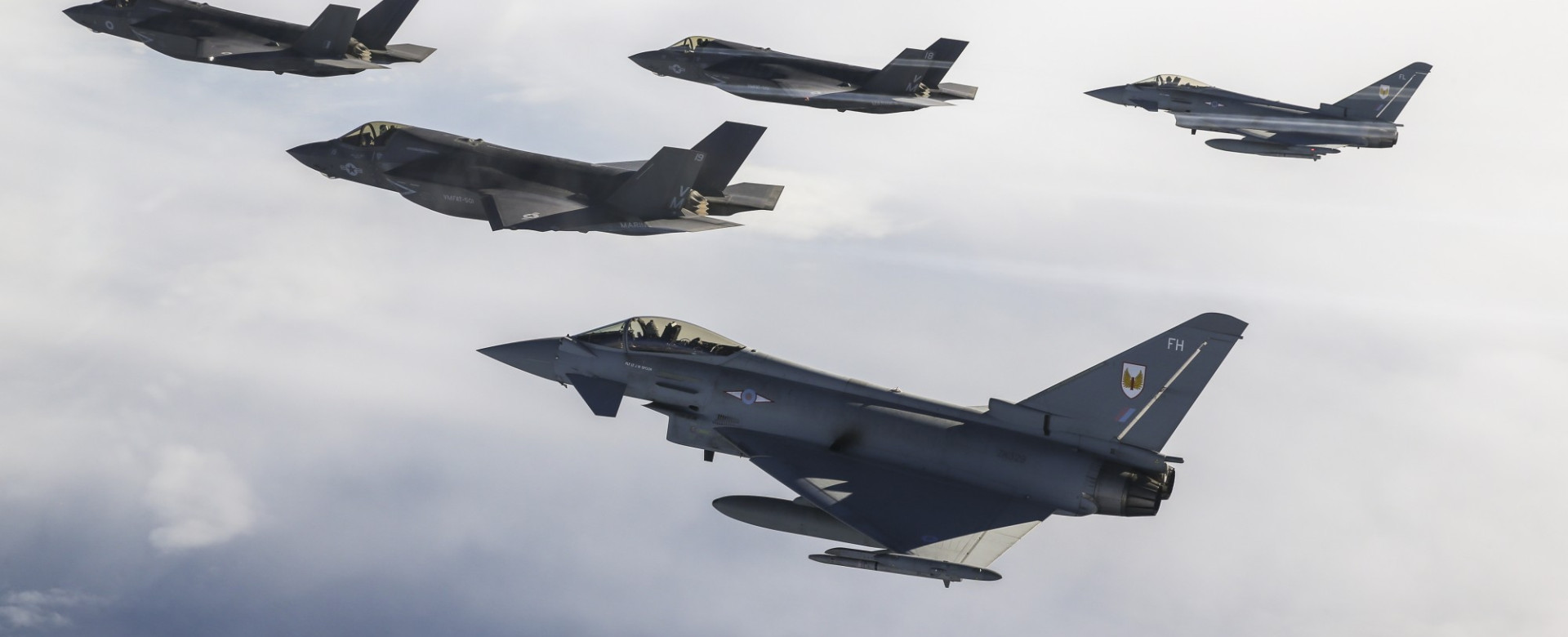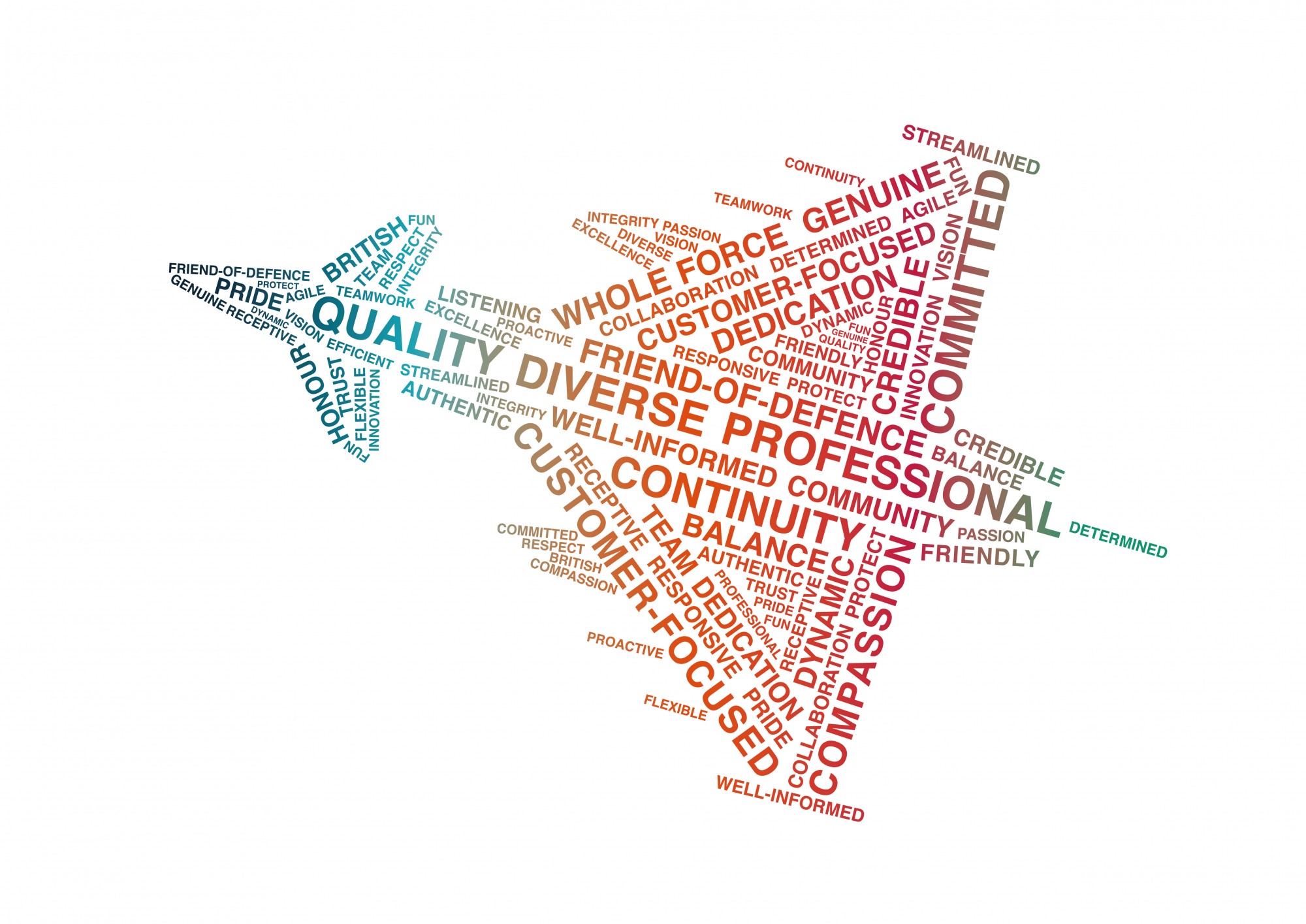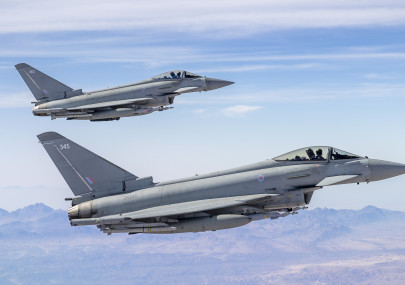

You might think that the role of a requirements manager (RM) is surely quite straightforward – it’s to manage the requirements of a particular project or programme!
However, anybody that has had experience in being an RM on any platform will have a view on such a simplistic description.
Inzpire provides a number of RMs across a wide variety of platforms and capabilities - including Lightning and Typhoon - and as such enjoys an unrivalled level of experience and corporate knowledge built over many years of a very challenging and demanding role.

Inzpire provides a number of RMs across Lightning and Typhoon programmes
Before going any further it’s important to seek out a more descriptive definition to help anyone unfamiliar with the subject of requirements management and to provide better context for this article. First stop; the old faithful: Wikipedia!
“Requirements Management is the process of documenting, analysing, tracing, prioritising and agreeing on requirements and then controlling change and communicating to relevant stakeholders. It is a continuous process throughout the project. A requirement is a capability to which a project outcome should conform.”
Take aways from the above definition should be ‘documenting’, ‘prioritising’, ‘controlling change’, ‘communicating’, and ‘continuous process’.
Whilst this definition adds some detail to the role of the RM it should be noted that it is generic and doesn’t consider some of the added challenges working in defence brings (such as security aspects and working with public/taxpayers’ money).
The MoD’s ‘Knowledge in Defence’ (KiD) website dedicates a number of pages to the description of the many tasks and responsibilities an RM holds. There are too many to include here, but to provide you with some context the opening paragraph states:
“The Requirements Manager (RM) is a programme delivery role responsible for taking Capability Requirements and developing them into User Requirements and maintaining alignment and coherence of the Systems Requirements within a programme. RMs are the custodian of the “Golden Thread”: the unbroken, top-down linkage of requirements from Defence policy to DLoD outputs, that provides the direction for investment plans and ensures that the capabilities generated are coherent and consistent with MOD’s strategic investment.”
Using the above as a very high-level overview of the tasks involved, allow me to give an insight into the sort of work Inzpire has done in recent years within our broad RM portfolio.
Taking capability requirements and developing them into user requirements
Inzpire’s RMs have been directly responsible for creating user requirements for the customer and writing the comprehensive document sets to support them, underpinning multi-million-pound business cases for cutting edge capability and technology.
Developing the requirements requires strong technical knowledge with extensive operational experience to ensure the user’s needs are captured in a manner that will endure and with a measurable level of effectiveness to support acceptance.
Inzpire’s RMs have conducted work which underpinned multi-million-pound business cases for cutting edge capability and technology.
The custodian of the “Golden Thread”: the unbroken, top-down linkage of requirements from Defence policy to DLoD outputs
Our RMs are responsible for generating milestone acceptance case reports for complex and highly classified programmes; to do this the ‘golden thread’ must be robust.
Demonstrating coherence from the actual requirement, at ‘user’ level, then ‘system’ level with the appropriate and demonstrable evidence trail across multi-national programmes is never straightforward and requires innovative thinking to tailor solutions to meet the customer’s need. The corporate knowledge base across the RM cadre required to propose such solutions is sadly no longer readily available in the uniformed services due to resourcing – and that’s where we fill the gaps.
Capabilities generated are coherent and consistent with MoD’s strategic investment
The MoD has a robust and rigorous system of scrutiny and auditability. Our RMs work as trusted agents alongside service personnel in the application of due diligence in everything we do, whether it be:
Developing document sets to demonstrate process and facilitate the transparent assessment of actual delivered capability against thresholds.
Participation in National Audit Office activity.
The generation and the management of a number of project management elements such as programme assumptions or facilitating programme governance meetings.
So, what does an RM working in defence do?
Using the high-level language used in KiD has given an insight to some of the skill sets called upon to be an effective RM.
However, in my opinion, the best definition of the role of the defence RM came out at a recent MoD-led symposium on requirements management. Chat GPT was asked “what does an RM working in Defence do?”, and came up with the following:
“An RM working in defence would have many of the same responsibilities as a requirements manager in any other field, but with some specific challenges and considerations related to the nature of defence projects.
“Firstly, an RM would need to have a thorough understanding of the unique needs and constraints of the defence industry, such as security requirements, regulations, and standards. They would also need to have a deep knowledge of the specific technology and systems used in defence, such as communication systems, radar, and weapons.
“Second, an RM would be responsible for ensuring that the software and systems being developed meet the specific requirements of the defence project, such as performance, reliability, and safety. This might involve working closely with other members of the defence team, such as engineers and military personnel, to understand their needs and translate them into technical requirements.
“Third, an RM would need to be able to manage complex systems and projects with multiple stakeholders, including government agencies, contractors, and military personnel. This would require excellent communication skills, as well as the ability to navigate complex bureaucratic processes.
“Overall, an RM would need to be highly skilled and experienced in software development, project management, and the defence industry. They would play a crucial role in ensuring that defence projects are delivered on time, within budget, and meet the needs of the military and government agencies.”

Our RMs provide continuity in an ever-changing workforce
The 21st century RM is so much more than just the post that manages a spreadsheet of requirements. Our Technical and Strategic Services Operational Business Unit provides a level of RM expertise with a broad technical background across operations and maintenance, test and governance.Our current roles see us developing processes and requirements to support multinational next-generation combat air technologies, working alongside our uniformed customers within a whole force construct. Some of our RMs have been involved with programmes for well over 10 years, providing a constant in an ever-changing workforce across air capability and the delivery teams – and that provision of continuity is what we do best.
After a career in the RAF on the F3 force and then latterly in the F-35 operational test world, Chris ‘Timber’ Forrester joined Inzpire in 2016. Over the past 7 years he has worked as a requirements manager on both Typhoon and Lightning.
